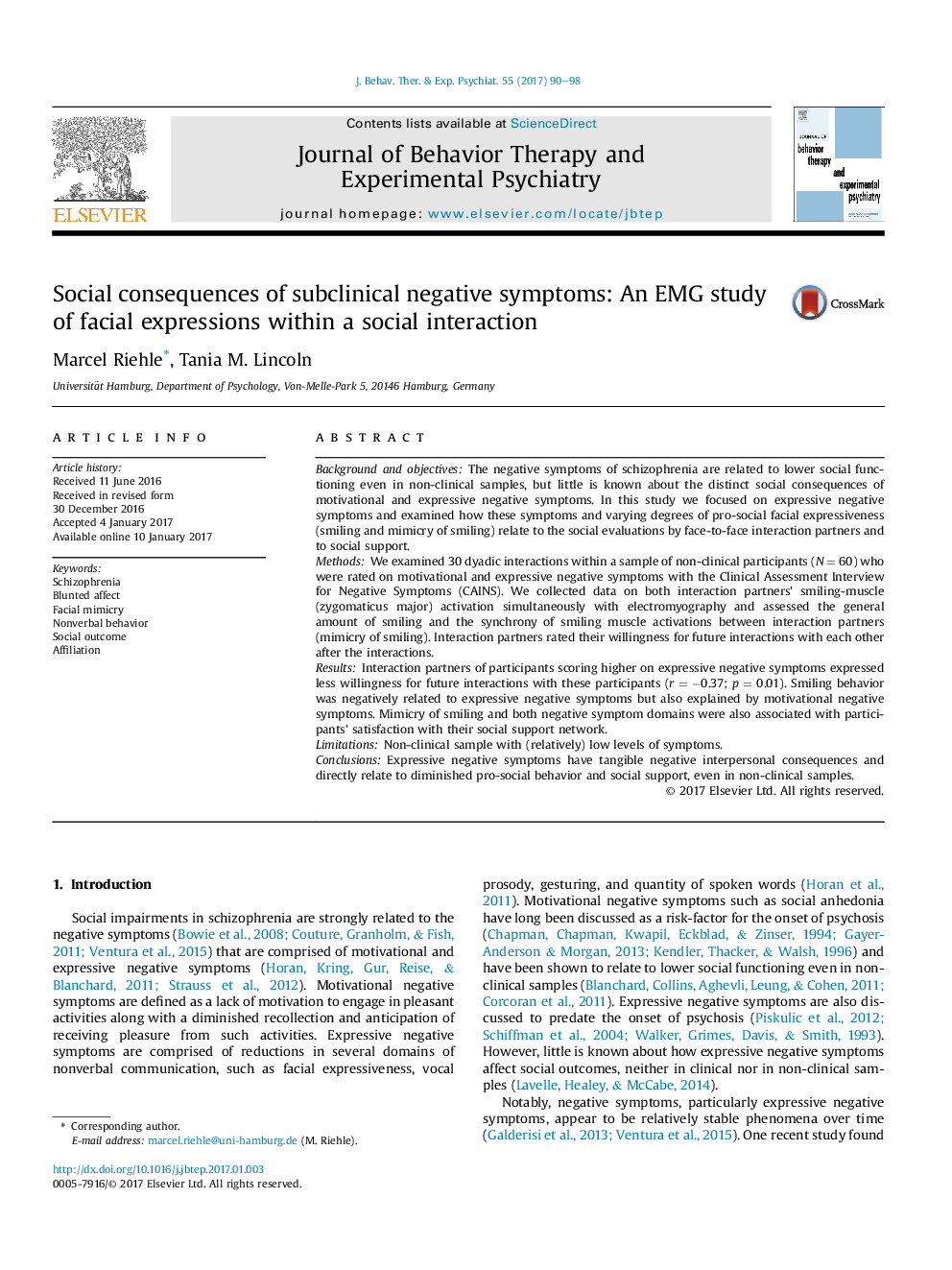| Article ID | Journal | Published Year | Pages | File Type |
|---|---|---|---|---|
| 5039057 | Journal of Behavior Therapy and Experimental Psychiatry | 2017 | 9 Pages |
â¢We examined the social consequences of expressive negative symptoms.â¢We investigated a non-clinical sample rated on negative symptoms.â¢We assessed smiling and mimicry of smiling via EMG in face-to-face interactions.â¢Interaction partners evaluated one another after the interaction.â¢Expressive negative symptoms were negatively related to all social outcomes.
Background and objectivesThe negative symptoms of schizophrenia are related to lower social functioning even in non-clinical samples, but little is known about the distinct social consequences of motivational and expressive negative symptoms. In this study we focused on expressive negative symptoms and examined how these symptoms and varying degrees of pro-social facial expressiveness (smiling and mimicry of smiling) relate to the social evaluations by face-to-face interaction partners and to social support.MethodsWe examined 30 dyadic interactions within a sample of non-clinical participants (N = 60) who were rated on motivational and expressive negative symptoms with the Clinical Assessment Interview for Negative Symptoms (CAINS). We collected data on both interaction partners' smiling-muscle (zygomaticus major) activation simultaneously with electromyography and assessed the general amount of smiling and the synchrony of smiling muscle activations between interaction partners (mimicry of smiling). Interaction partners rated their willingness for future interactions with each other after the interactions.ResultsInteraction partners of participants scoring higher on expressive negative symptoms expressed less willingness for future interactions with these participants (r = â0.37; p = 0.01). Smiling behavior was negatively related to expressive negative symptoms but also explained by motivational negative symptoms. Mimicry of smiling and both negative symptom domains were also associated with participants' satisfaction with their social support network.LimitationsNon-clinical sample with (relatively) low levels of symptoms.ConclusionsExpressive negative symptoms have tangible negative interpersonal consequences and directly relate to diminished pro-social behavior and social support, even in non-clinical samples.
